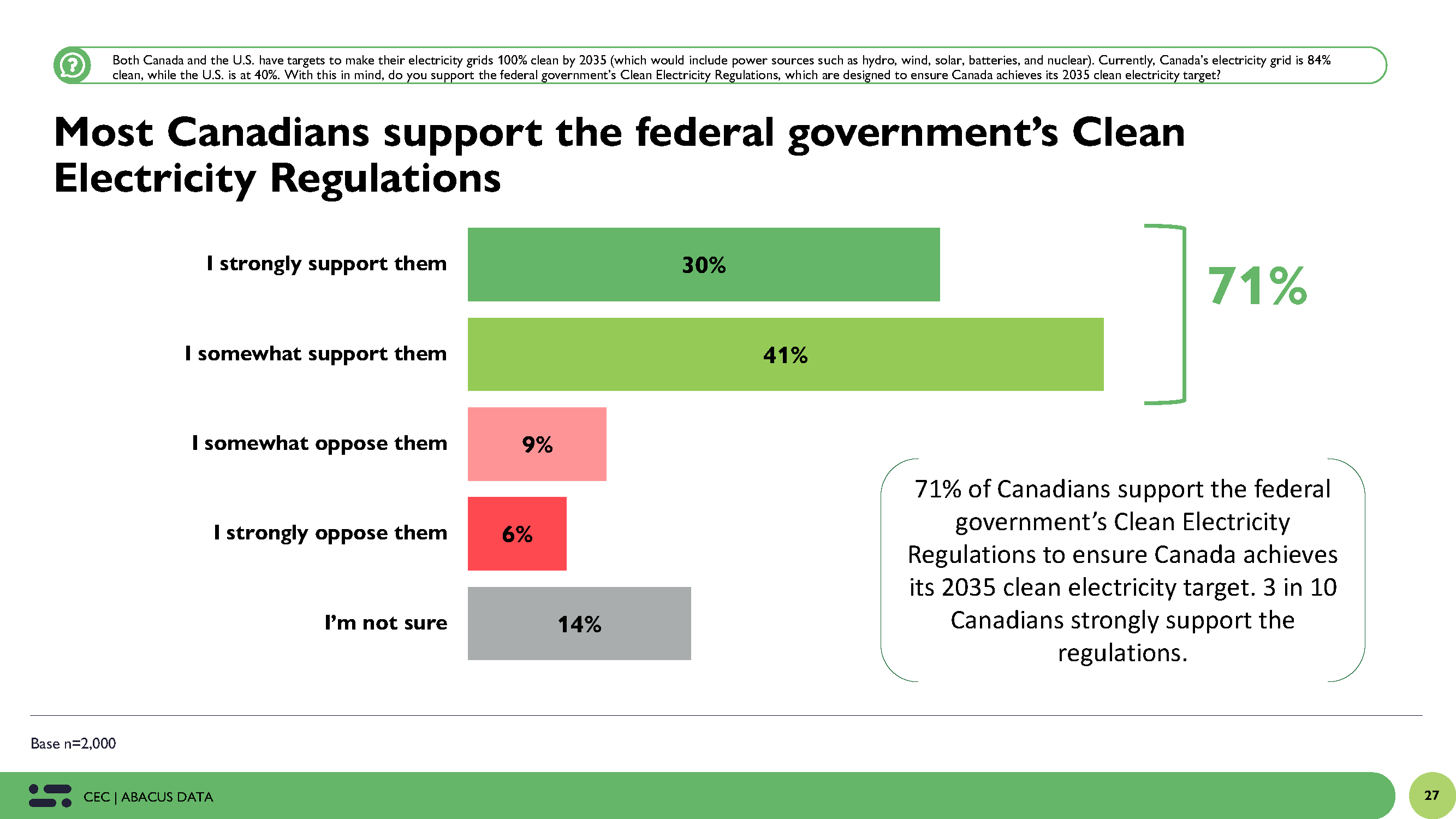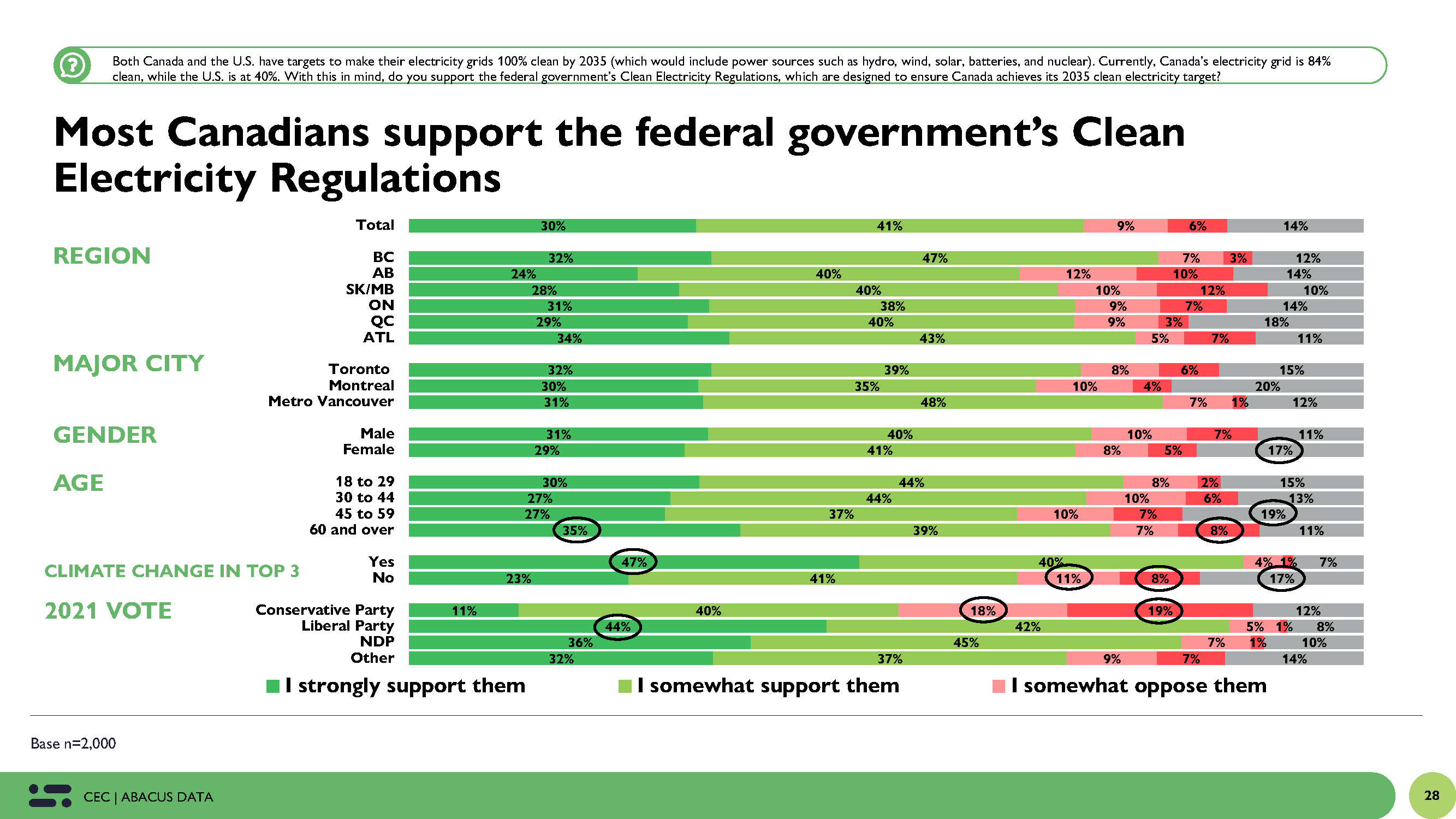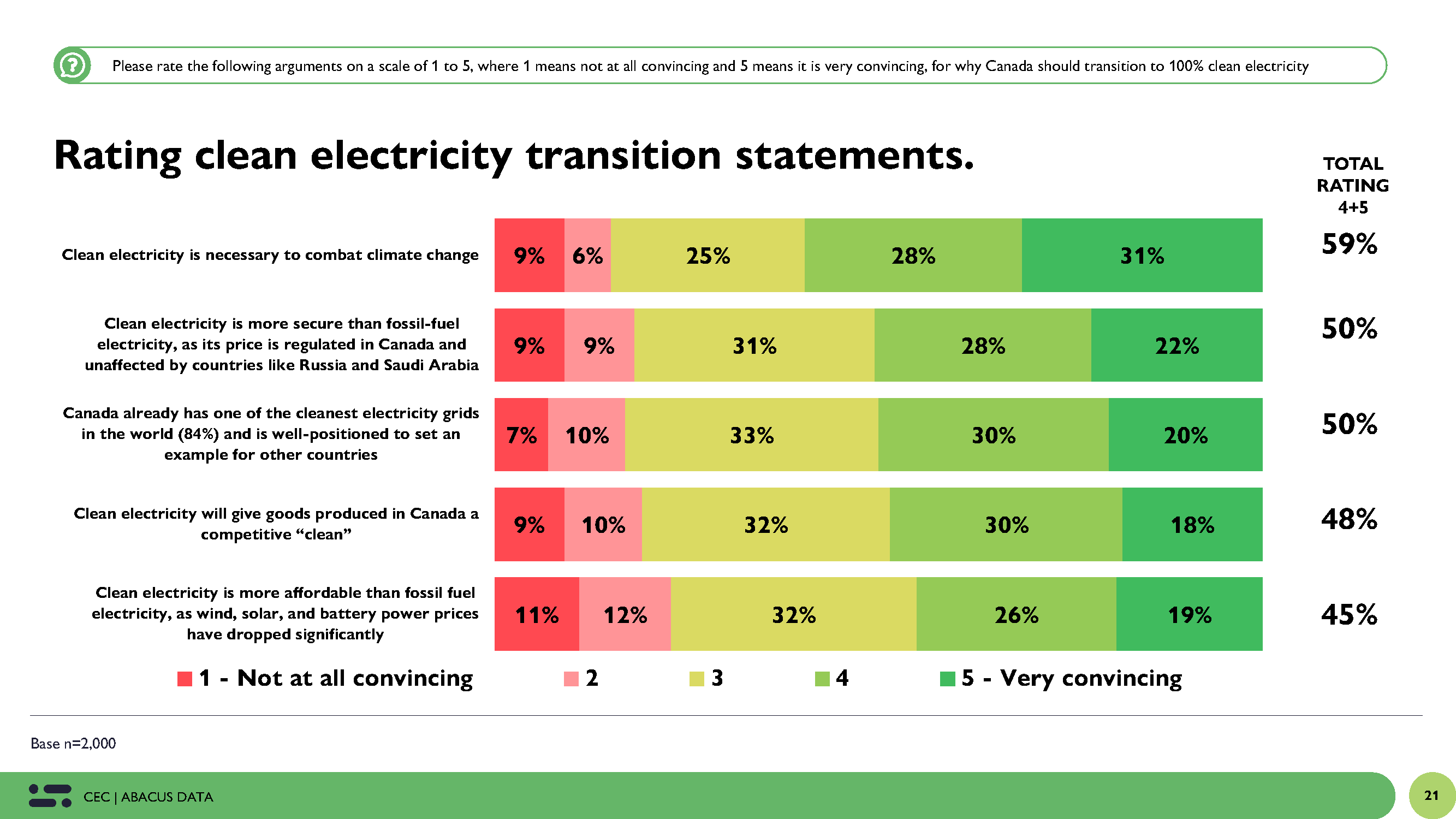VANCOUVER – An overwhelming majority (71%) of Canadians support the federal government’s forthcoming Wipe Electricity Regulations—designed to ensure that Canada’s electricity grid is 100% wipe by 2035—finds a new poll from Wipe Energy Canada and Abacus Data.

In B.C. and Atlantic Canada, support for the Wipe Electricity Regulations is plane higher, with nearly 8 in 10 saying that they “somewhat” or “strongly” support them. Increasingly Canadians support the regulations than are versus them in every region, including Alberta.

When asked to rate arguments for why Canada should transition to 100% wipe electricity, Canadians rate “clean electricity is necessary to gainsay climate change” as the most convincing. Also convincing, they find, are the arguments that “clean electricity is increasingly secure than fossil fuel electricity” and that “Canada once has one of the cleanest electricity grids in the world and is well-positioned to set an example for other countries.”

QUOTE
Evan Pivnick, wipe energy program manager at Wipe Energy Canada
“Clean power is the windrow of a successful energy transition. It’s what powers our homes, our cars, and businesses in a net-zero Canada. And it’s very popular. While Alberta’s premier has positioned herself versus Canada’s forthcoming Wipe Electricity Regulations, the fact is that a majority of Albertans unquestionably support the policy, and the province is poised to be a leader in securing wipe energy investments. Wipe electricity is a climate imperative, an economic advantage, and a no-brainer for Canada. We once have one of the world’s cleanest power grids—wasting that throne start is no way to win a race.”
METHODOLOGY
The survey was conducted with 2,000 Canadian adults from June 06 to 11, 2023. A random sample of panelists were invited to well-constructed the survey from a set of partner panels based on the Lucid mart platform. These partners are typically double opt-in survey panels, composite to manage out potential skews in the data from a single source. The margin of error for a comparable probability-based random sample of the same size is /- 2.191%, 19 times out of 20. The data were weighted equal to census data to ensure that the sample matched Canada’s population equal to age, gender, educational attainment, and region. Totals may not add up to 100 due to rounding.













